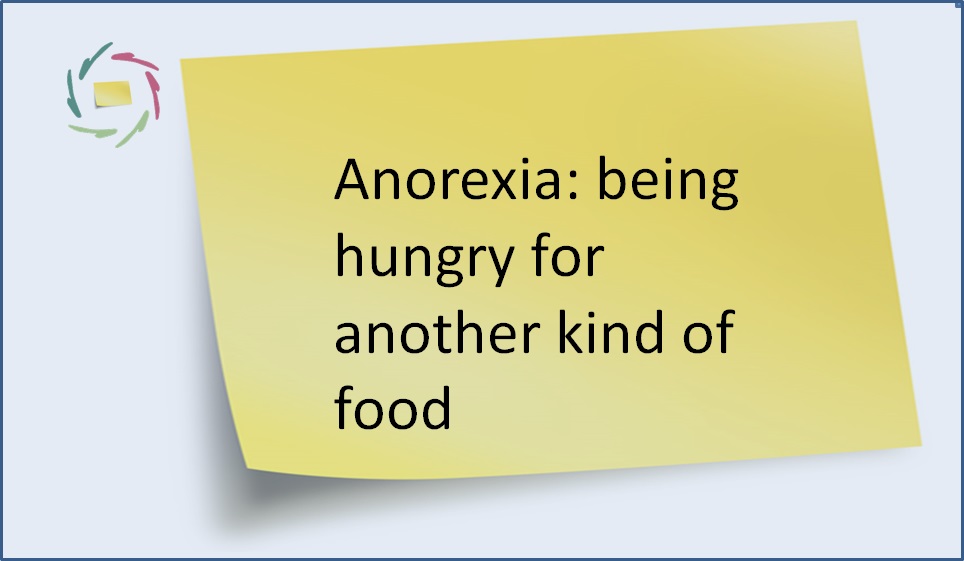9. Anorexia: being hungry for another kind of food

Hypothesis: an anorectic is someone who is in dire need of ‘soul food’ and because this is not available, enacts this deep need into not taking any other food either.
◊◊◊
This doesn’t make every anorectic a kind of saint, unless you assume that in the end we are all ‘saints’. What’s in a word. Really when thinking in religious terms, we are all ‘close to God’. If God is everywhere, he is also in you, sorry, You. You may be a saint without knowing it yet.
◊◊◊
So, yes, I dare speak of ‘soul food’. In this case, ‘food for the soul’ is the soul itself. The soul is the food. What I’m saying is that an anorectic needs more genuine ‘soul’. One can easily see in the very low body weight an attempt to get to this soul within oneself, to make the soul come out as it were. Sadly, one cannot make the soul come out. It’s a desperate attempt. Therein lies the ‘disorder’ of anorexia nervosa.
◊◊◊
You may say that anorectics are ‘victims of a beauty ideal of sveltness’. But then you are in fact saying the same thing. Ideals are soul-stuff. So anorectics are sensitive / possible victims to this more than most other people.
◊◊◊
You may say that anorectics have ‘an unrealistic vision of their own body’. That’s true. They have a soul-vision of the body. That is unrealistic, depending of course on what you call ‘realistic’. For an anorectic, it is realistic, so you will not be able to convince him/her of the opposite view through a verbal fight.
◊◊◊
You may say that anorexia is a kind of slow suicide. True. If the soul cannot be found in this life, then it will be looked for in another ‘life’, say: in death.
◊◊◊
Whatever vision I encounter on anorexia, I always see in its core a ‘quest for soul’. Probably, a number of anorectic personalities find this in religion if it is available to them in a fulfilling manner.
◊◊◊
In this view, an anorectic is someone with a specific sensitivity, therefore also vulnerability in certain circumstances. Our age of ‘enlightenment’ and rationalism may be such a circumstance. This doesn’t mean that we have to forget rationalism. On the contrary, we may have to deepen it, so that it becomes broad enough as to be a good place for all people, including ‘anorectics’. Maybe then they are no longer people with weight problems. Maybe then they can thrive as people with a very big potential to shape and deepen humanity itself.
◊◊◊
Maybe then they are the ones who find ‘soul’ most of all.
◊◊◊


